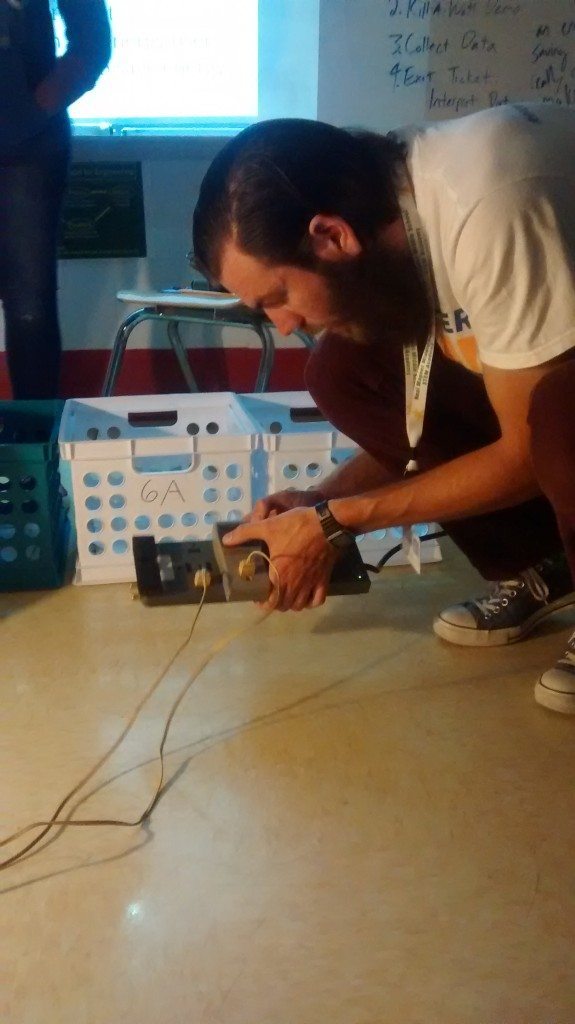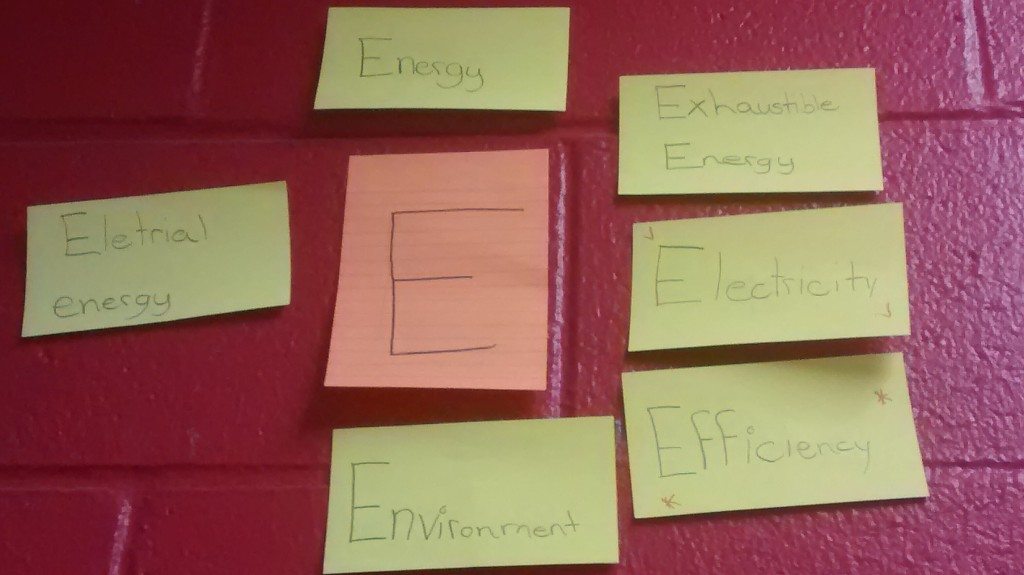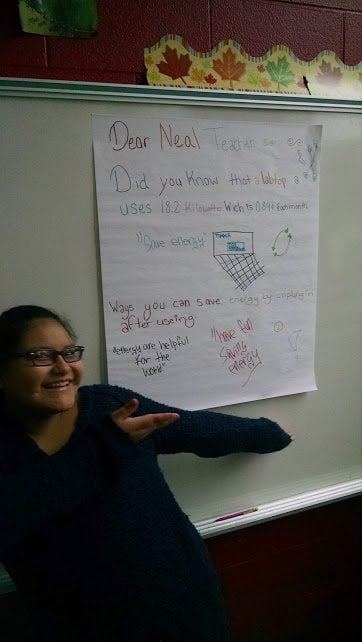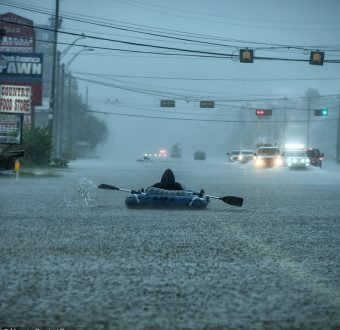Serving the School: A Lesson In Sustainability
Last Friday, more than 50 middle schoolers participated in an energy audit at Neal Middle School in Durham, North Carolina. An energy audit is a technical check of energy use in order to monitor and evaluate energy consumption.
Neal is a STEM (Science, Technology, Engineering and Math) Academy for Engineering and Design students, and according to its website, “the only middle school in Durham (and one of the few in the state) to adopt and implement the Gateway to Engineering curriculum that introduces students to a wide variety of engineering disciplines through engaging and hands-on lessons that emphasize the Engineering Design Process.”

Mr. Fagan demonstrates how to use a watt-meter for an energy audit with his class. Photo by Caroline Hansley / Greenpeace.
Where We Learn Matters
Repower Our Schools, an effort to transition school districts to 100 percent renewable electricity, teamed up with Mr. Fagan, who teaches about energy and the environment, to involve students in this year’s Green Apple Day of Service. The Center for Green Schools, a part of the U.S. Green Building Council (USGBC), sponsors this national day to highlight sustainability projects and transform schools into healthy, safe and productive learning environments through local service projects.
Fagan taught a lesson on energy efficiency to each class before students conducted an energy audit of different rooms in the school. Assisted by Durham Public Schools’ Coordinator of Energy and Sustainability, Mr. Callaway, students used meters to monitor and record how much electricity was being used by different types of light bulbs as well as appliances within the school. Data collected by these students will be used as part of a larger effort for school energy efficiency and conservation in the coming months.
What Does a School-Wide Energy Audit Look Like?
Seventh graders explored the teachers’ lounge and teachers’ work room, measuring the microwaves and vending machines.
Eighth graders reviewed their own classroom as well as the school’s Media Center, measuring computers, TVs, and projectors.

E is for Energy during an energy audit with Repower Our Schools in North Carolina. Photo by Caroline Hansley / Greenpeace.
Sixth graders investigated the front office and guidance counselor’s office, measuring phones and copy machines.

Sixth graders measure how much energy a copier uses in an energy audit with Repower Our Schools. Photo by Caroline Hansley / Greenpeace.
Why Do an Energy Audit?
Schools across the country that create hands-on STEM lessons through project-based learning activities like energy audits have often found ways to save energy and money while also helping students think beyond that day’s lesson and take ownership for their school.
After learning first-hand how much different appliances in their school use energy, students brainstormed their own ideas to save energy, like unplugging devices when not in use and hitting the light switch when leaving the room.
The lesson came full circle when students realized that saving energy means saving money. One young girl remarked, “I can unplug my phone charger when I’m not using it, because our energy bill keeps going up.”
Repower Our Schools would like to extend a big thank you to Mr. Fagan, Mr. Callaway, Neal Academy staff and administration, and the USGBC, who all helped these students gain a greater understanding of energy and how each of them can make a difference through their own behavior change as a first step in conserving energy.

This 7th grader is excited to show off her poster, reflecting her calculations from the energy audit at her school.
Reed Fagan / DPS
Up Next: Green Apple Day Solar Lesson
This week, Repower Our Schools is heading to Forest View Elementary in Durham to teach a solar lesson to fourth and fifth grade science students.




